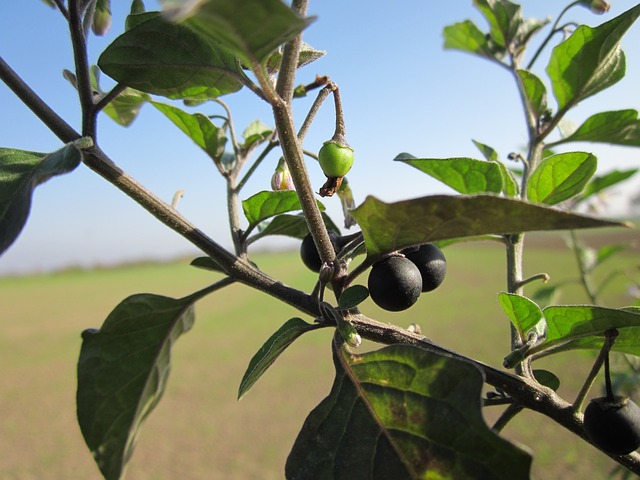Childhood is the phase of life most cherished by all. Childhood experiences of most kids in the rural, semi-urban dwellings and suburban townships across India is incomplete without a memorable indulgence in the wildly growing succulent black berries of the black nightshade.
This edible medicinal weed, quite popular in the country, goes by the name kakamaachi in Sanskrit, makoy in Hindi, manathakkali in Tamil, and kaake soppu in Kannada. Its botanical name is Solanum nigrum. Black nightshade is also the unsung hero in treating diseases of hepatobiliary origin [liver and associated structures], including skin disorders, spleen disorders, fevers, among others.
The Ayurvedic text, Bhava Prakasha Nighantu, praises kakamachi as the herb that mitigates all the three doshas, improves voice and vigour, is indicated in conditions, such as swellings, inflammation, haemorrhoids [piles] and other diseases of the intestines, diarrhoea, eye diseases, rabies and certain urinary problems, including hiccoughs, vomiting, and cardiac diseases as well. The herb is also praised for its rejuvenating effects, where the individual is treated for their imbalanced doshas most efficiently. The plant is rich in vitamin C, calcium, phosphorous and iron.
For ages, Indian households are familiar with the chutneys, buttermilk preparations, soups, stir fry, fritters, kootu and kuzhambu preparations cooked from the nightshade greens. Manathakkali keerai preparations are recommended as a healing recipe for individuals suffering from ulcerations in the digestive tract. The unripe berries are also used in culinary aspects: fresh, or sundried. The ripe berries can be eaten fresh and raw, or a jam can be prepared with the addition of sugar and preserved for a long time.
The era that we live in is witness to gastric disturbances and stress, where the two are intertwined as the most primary imbalances that trigger several health ailments. Ergo, the significance or realisation of the usefulness and applications of edible weeds, like the garden nightshade is obvious. A true knight in shining, healthy armour, rescuing us from certain gut realities — liver and spleen disorders.
Medicinal Uses
- Black nightshade is an antiperiodic, anti-phlogistic, aphrodisiac, diaphoretic, diuretic, emollient, febrifuge, laxative, narcotic, purgative, sedative, stimulant and tonic
- It has analgesic, antispasmodic, anti-inflammatory, sedative, vasodilator and vulnerary properties
- It may be used as a poultice for headaches
- It is useful for cancerous sores, boils, leucoderma [vitiligo] and wounds
- It may be used as an analgesic for toothaches
- A tincture of the leaves eases neuralgic pains
- The ripe fruit has aphrodisiac, diuretic and laxative attributes.
It is imperative that black nightshade is taken as medicine under professional guidance.
Black nightshade should not be taken during pregnancy.

